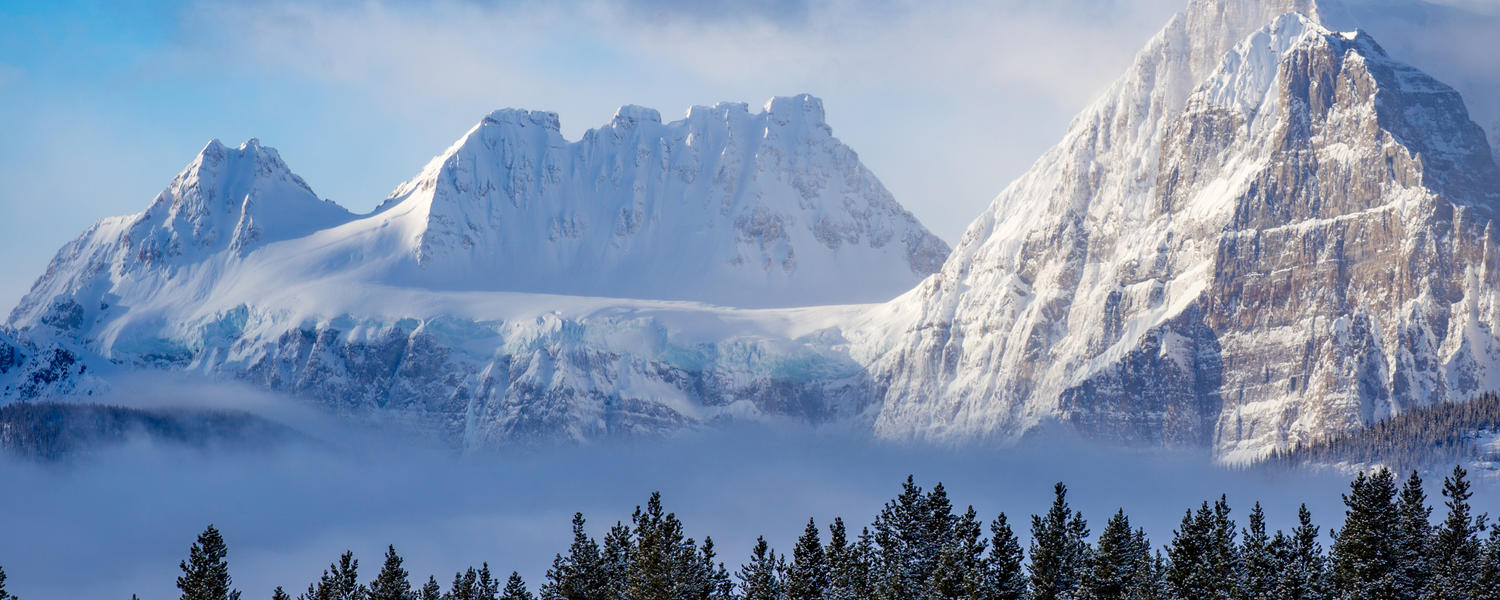Geography
Geography is the study of human and physical landscapes on the Earth’s surface. Geographers ask questions such as: How will climate change affect human activities and health? Why do receding glaciers and sea ice affect global sea levels and how do we measure the effect? Why do socio-economic and political structures shape people’s lives around the world?
A unique place to study
Our unique location in southern Alberta provides a diverse laboratory for studying human and physical geography. The undergraduate geography program combines a broad range of related subjects in both the natural and social sciences. You will develop skills in research, geospatial methods, logical and abstract reasoning and in-depth knowledge of the different regions and cultures that make up our global community.
Hands-on experience
Many of our courses combine traditional classroom learning with hands-on experience through local and international field studies, computer mapping and analysis, laboratories and individualized research courses.
Technology
Our technical program includes remote sensing, GIS, computer cartography, digital image analysis, and both qualitative and quantitative analysis.
Methodology
Methods courses are supported by department-based access to state-of-the-art software and hardware that is continually updated to keep pace with rapidly changing technology.
Enhance your degree
Learn more about minors, majors and combined degrees
The Honours BA and BSc programs will further enhance your understanding of Geography, further develop your competencies in field work techniques, research methods and presentation skills and help prepare you for an advanced degree program.
Programs in Geography cannot be taken in conjunction with programs in: Earth Science; Environmental Science or Urban Studies. This restriction applies to Major-plus-Minor combinations, Double Majors, Combined Degrees and Second Baccalaureate Degrees because each of these programs integrates a substantial geography component.
You can combine your geography degree with a Major or Minor from the Faculty of Arts or the Faculty of Science. Here are some examples:
- Anthropology; Archaeology; Development Studies; International Indigenous Studies; Sociology (Faculty of Arts)
- Biological Sciences; Geology (Faculty of Science)
Both BA and BSc degrees in Geography can be completed concurrently with a Bachelor of Education.
Study/course streams
A stream is a collection of courses and research around a particular subject within geography. Taking courses in a stream can help develop your expertise in that area.
Development, power and justice focuses on the complex processes and links between economic and social development, power relations and justice issues around the globe.
Engage in a diverse range of research in:
- international development in theory and practice;
- urban food security and HIV/AIDS;
- health in aboriginal communities, indigenous land rights, environmental and indigenous movements;
- public policy issues around regional growth and change;
- natural resource development;
- community-based resource rights;
- mining conflict and local resistance;
- liberation theology and ecology;
- political ecology;
- neoliberalism and its critiques;
- and social justice issues from the local to the global.
Geospatial science includes:
- remote sensing,
- geographic information systems (GIS),
- quantitative analysis
- and geovisualization.
Using these systems changes the way we interact with the world. You will work with others to address our most pressing social and environmental challenges. You will develop skills and explore advanced topics in geovisualization, customization, and spatial analysis to deepen your geographic interest and prepare for many possible careers.
Earth System Science will provide you with an understanding of environmental systems. You will develop skills to conduct scientific inquiry and communicate effectively.
This stream prepares you for a career that studies interactions between human activities and Earth's water resources, climate and biological systems. You will gain a solid background using state-of-the-art technologies to measure, analyze and map the Earth.
Urban, regional and global political economy concerns the spatial processes and power relations that shape cities and regions. This is where a wide range of processes intersect:
- capital investment and disinvestment;
- state power and policy making;
- planning, governance and government mentality;
- political struggle; and more.
You will conduct research about many locations around the world, linking processes from the local to the global.
Environmental governance and management focuses on the connections between human-environment systems and their socio-political realities. You will research the conflicts behind local and global environmental issues to understand more sustainable uses of natural resources.
Explore a wide range of topics, from local environmental issues concerning national parks and protected areas, to global environmental policy and environmental conflicts in the Global South.
Admission questions? Browse contacts and help


